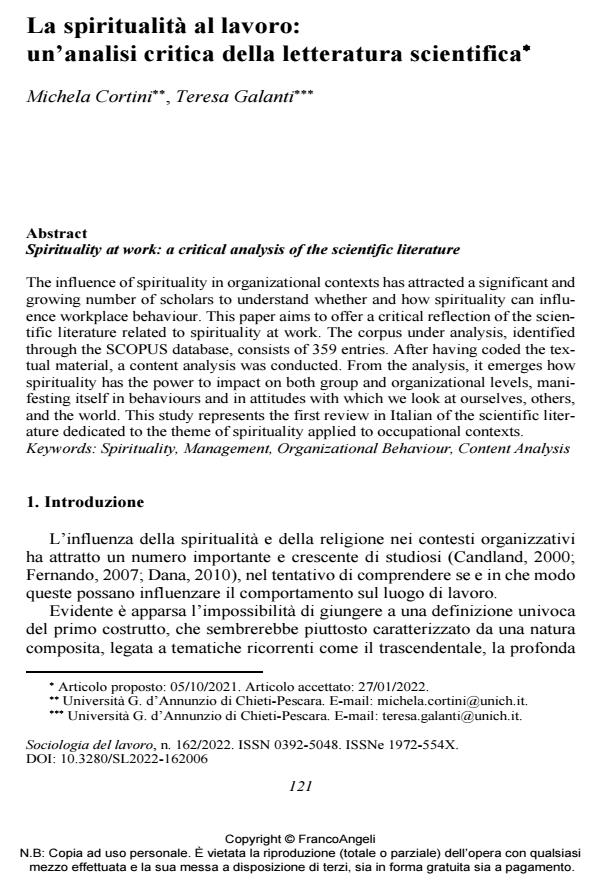Spirituality at work: a critical analysis of the scientific literature
Journal title SOCIOLOGIA DEL LAVORO
Author/s Michela Cortini, Teresa Galanti
Publishing Year 2022 Issue 2022/162
Language Italian Pages 18 P. 121-138 File size 379 KB
DOI 10.3280/SL2022-162006
DOI is like a bar code for intellectual property: to have more infomation
click here
Below, you can see the article first page
If you want to buy this article in PDF format, you can do it, following the instructions to buy download credits

FrancoAngeli is member of Publishers International Linking Association, Inc (PILA), a not-for-profit association which run the CrossRef service enabling links to and from online scholarly content.
The influence of spirituality in organizational contexts has attracted a significant and growing number of scholars to understand whether and how spirituality can influence workplace behaviour. This paper aims to offer a critical reflection of the scientific literature related to spirituality at work. The corpus under analysis, identified through the SCOPUS database, consists of 359 entries. After having coded the textual material, a content analysis was conducted. From the analysis, it emerges how spirituality has the power to impact on both group and organizational levels, manifesting itself in behaviours and in attitudes with which we look at ourselves, others, and the world. This study represents the first review in Italian of the scientific literature dedicated to the theme of spirituality applied to occupational contexts.
Keywords: Spirituality, Management, Organizational Behaviour, Content Analysis
Michela Cortini, Teresa Galanti, La spiritualità al lavoro: un’analisi critica della letteratura scientifica in "SOCIOLOGIA DEL LAVORO " 162/2022, pp 121-138, DOI: 10.3280/SL2022-162006